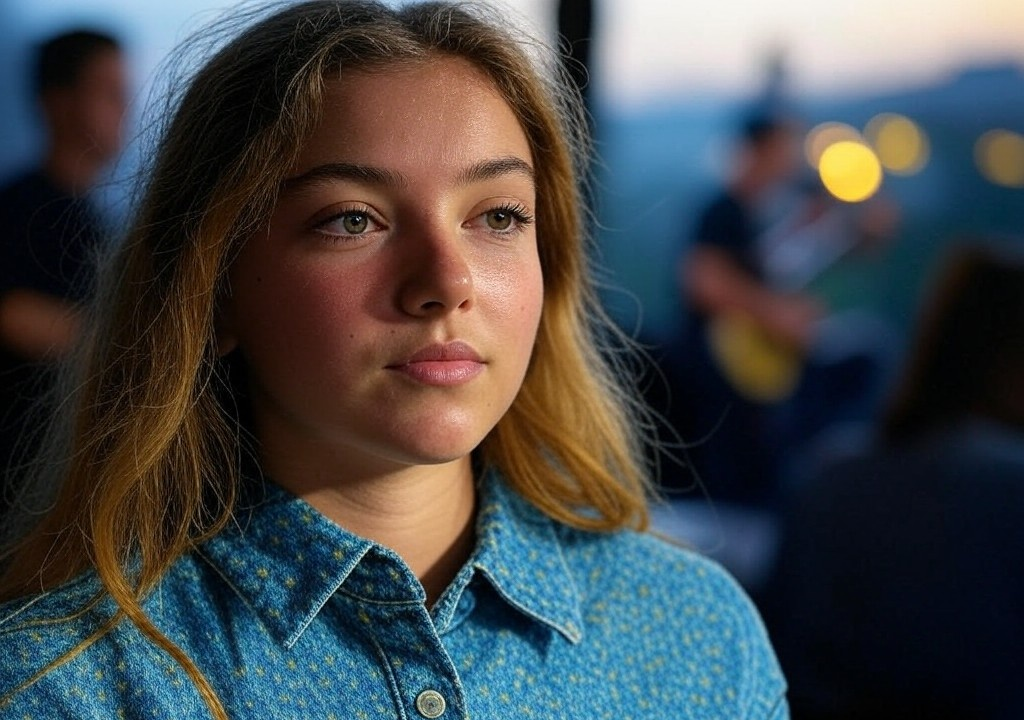The Leap That Changed Everything
Let’s set the scene: This was pre-pandemic, back when you could join a salsa class just for fun and not because you were “rediscovering things post-lockdown.” I was 28, sitting in my car, gripping the steering wheel with knuckles so white you’d think I’d just Googled "worst case scenario for public humiliation." I was parked outside a storytelling workshop at a community arts space in Austin—the kind of dimly lit, slightly quirky venue where the walls are lined with mismatched chairs and everyone looks cooler than you, even in vintage sneakers.
In theory, this workshop should have been my thing. I mean, I’ve always loved words—reading them, writing them, overanalyzing them in movies where no one would ask me to “relate it back to my personal journey.” But that was the thing: this wasn’t about escaping into someone else’s narrative. This was about daring to tell my own.
Why This Leap Felt Risky
I’d always been the introvert in a family of bold personalities. My mom, an experiential-learning crusader, once assigned her third graders a group project on “how feelings work” for fun. My dad could debate the ethics of supermarket tabloids with a checkout clerk. Me? I mastered the art of being someone’s quiet sidekick: the helpful sibling, the focused student, the empathetic but don’t-look-too-closely-at-me friend.
Now, as I stared at the printed workshop description crumpled in my lap, my inner monologue was throwing shade like a reality TV confessional. Who did I think I was, imagining that strangers might actually connect with my story? That people who didn’t love me by default (shoutout to my mom) would care about my words? My stomach was in knots comparable only to the time I thought it was “just a lighthearted idea" to share my crush feelings in the ninth grade yearbook—spoiler: it was not.
Stepping Into the Spotlight: Kind of
In the end, I walked into that workshop late. Classic Harper move. But hey, at least “arriving late” wasn’t on the list of worst-case scenarios (fainting mid-story was). I found an empty seat, feeling like I’d accidentally stumbled into a secret meeting of the Austin Cool Kids Coalition. One girl wore a beret unironically. Another guy somehow managed to make cargo pants look intentional. Meanwhile, I was in a UT hoodie and sneakers with a hole where big toe optimism used to be.
The workshop’s facilitator—a sprightly poet with energy so radiant it made me want a nap—asked us to write down one story or experience we carried close to us. Something personal, she said, but maybe not the one you share in passing. I froze. Personal? Which version of personal? Was it the universal “let’s show humanity I exist too” kind of personal, or the “I once tried to fake food poisoning to get out of karaoke” vibe? (Both, arguably, are relatable.)
What I Learned in That Room
Fast forward two hours and the knot in my stomach had loosened—just a little. Turns out, the only thing more awkward than reading your story aloud is hearing how poetic your nervous voice sounds when you hit the mic. Yes, I stammered. I skipped words. I overshared about a college breakup involving matching tattoos (don’t ask). But by the time I finished, heads were nodding. Someone who’d been scribbling furiously the whole time—beret girl!—even came up to me after and said, “That was really raw. I liked it.”
Here’s the kicker: it wasn’t Shakespeare, but it didn’t have to be. Sitting in that room, I realized something that had eluded me in moments when doubts made dreams feel like they belonged to braver, more sparkly people. Taking a chance on yourself doesn’t have to be about impressing anyone. Sometimes, it’s just about saying, ‘Here’s who I am,’ and letting that be enough.
Practical Takeaways From Tiny-Leap Living
I know not everyone’s risk is going to be about storytelling workshops and unmet potential, but there are some nearly universal truths about leaping out of your comfort zone that I wish I’d known earlier. (Consider this my “take these breadcrumbs; don’t suffer needlessly like me” section.)
-
It doesn’t have to be perfect to be worth it. There’s this myth that risks should pay off in grand, immediately Instagrammable ways. They don’t. Sometimes the win is quieter, like realizing you didn’t spontaneously combust or that someone out there gets you—even if only a little.
-
You’ll meet your people where you’re your truest self. If I’d skipped out on that workshop, I wouldn’t have met a group of wildly creative misfits who’ve since become some of my closest friends. Finding your crew doesn’t mean contorting yourself to fit into random groups. It’s showing up and saying, “This is me, ill-fitting hoodie and all.”
-
Tiny acts of bravery are a momentum-builder. Big, dramatic risks might sound cinematic, but it’s the small ones that tend to stack up and shift your life. That workshop gave me the confidence to pitch my first essay—which led me here, writing to you.
-
Failing gracefully is better than not trying at all. Will there be awkward moments? Oh, absolutely. (I still cringe about a typo in that first essay pitch.) But you’ll survive. And the sting of trying and “failing” will always hurt less than the pang of holding yourself back.
The Unexpected End Game
Before that workshop, I often approached life (and romance) like a cautious hiker peering over the edge of a cliff. What happens if I tumble into the unknown? The answer, I’m discovering, is rarely as scary as your imagination paints it. Sure, the risk might turn out to be a disaster, but it might also turn into something profoundly beautiful: new connections, fresh opportunities, bigger breaths because you’re no longer shrinking into someone safer but smaller.
So while I’m not saying take every impulsive risk (I still think about those tattoo decisions), I am saying that trusting yourself—even if just a little—might pay off in ways you never imagined. And if you’re lucky, someday that little leap might give your future self a story to laugh about—or cry about—while sitting around with people who get you.
Whatever happens, you were brave enough to try. And that’s enough.




















